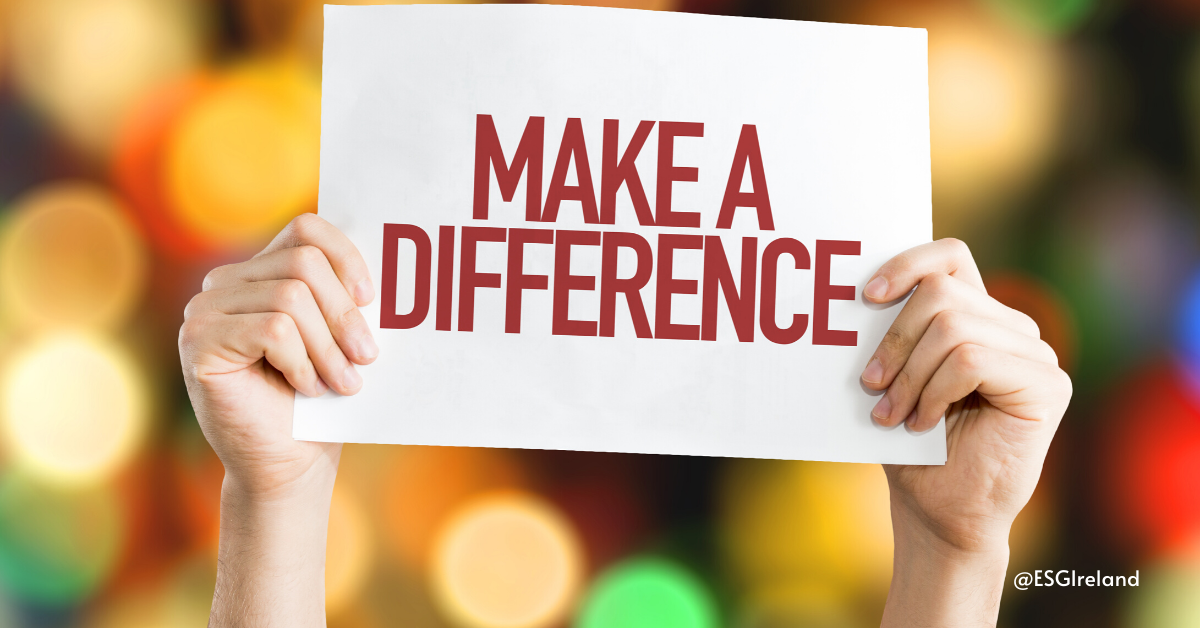
For me, the concept of Social Impact is fundamentally about delivering a lasting positive change on society. I believe in the collective power of small changes at an individual level to deliver a significant social impact. However, we need a more self-aware society where individuals realise the interconnectedness of the world we live in and the power of their individual decisions.
Individual Social Impact
The cracks have been widening in our current economic system for some time now, exacerbated by a culture of short termism that puts profit ahead of people and the environment. An indifference to society, fed by a sense of powerlessness as individuals, has enshrined the status quo, a world absorbed by a desire to accumulate and numb to the deepening social and environmental challenges.
It is easy to blame “the capitalist elite” but a system can only survive if the majority buy into it. Take corporations for example; they are a dominant force in our current economic system, and we have seen a repeated abuse of their power across all industries.
While the illegal activity of a corporation – fraud, money laundering, human rights abuse, environment destruction – creates some short-term headlines there is a sense that people have almost come to expect it and accept it as part of the system.
However, those individuals feeling powerless need to remember that a corporation can only exist if individuals work there, if individuals buy its product or service and if individuals invest in the company. The point is that it is important not to dismiss the potential social impact your individual decisions can have as an employee, a consumer, and an investor.
The Next Generation
Of course, many in power are happy to maintain the status quo. However, the social challenges are becoming so obvious that more and more people are starting to ask questions. The Millennial Generation – which will soon dominate the global workforce – are reportedly focusing much more on the social impact organisations are making. This in turn has contributed to the demand for responsible investment. We are also seeing new trends in consumer behaviour and changes within the workplace. Impact matters.
Albert Einstein wrote in May 1949 – in an article discussing Socialism and the crisis of humanity – “nowhere have we really overcome what Thorstein Veblen called “the predatory phase” of human development”. Nothing has changed since then; if anything, that predatory nature has intensified. If you want proof, just watch “Dirty Money” on Netflix.
Still, there is hope that we can change for the better. The corona crisis has shown what we are capable of, our ability to unite for a shared cause.
While there have been some who have sought to profit from the crisis through fraud, it is the stories of community spirit that shine brightest. The willingness of those on the frontline to put their lives at risk every day to save the lives of strangers. Or the people that keep our supermarkets running, along with other basic services we once took for granted.
The majority of people are good people and I think almost everyone would like to see us move beyond our “predatory phase of human development”. However, to achieve this we need to rethink how we, as individuals, consider the concept of social impact and most importantly our power as individuals to shape the society we live in. Those with the most power have the most responsibility.
My hope is that if anything good can come from the corona crisis, it will be that it prompts such a rethink at an individual level. We need to reach a point of development whereby all decisions are made in a much more socially conscious way, to deliver a more secure future for everyone.
End
Founder, ESG Ireland
